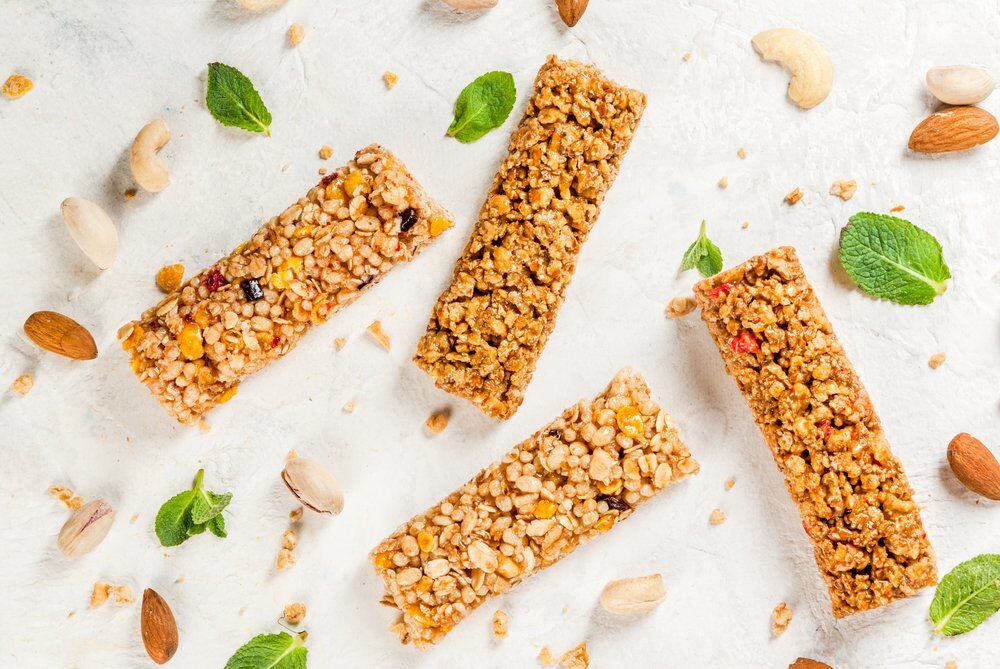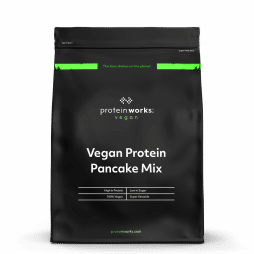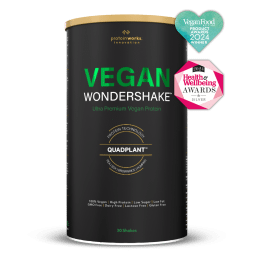
What is a Vegan Protein Bar?
The number of people turning towards vegan products is increasing each and every year. In January 2020, a record 400,000 people signed up to Veganuary, more than 120,000 new vegan products were launched and more than 600 business took part, many of which came from the fitness and nutrition sectors. (1)
In fact, over recent years there’s has been a boom in the number of vegan products offered by supplement companies, many of which now have dedicated vegan sections online, including here at Protein Works
We are always looking for ways to improve and increase our offering of plant based goodies for everyone, whether you’re a dedicated plant based athlete or simply just looking for a dairy free alternative.
But just what is a vegan protein bar and what are the key difference between that of a standard whey bar?
Before we get into the nitty gritty, let have a quick glimpse into the protein bar history books…
An Out Of This World Invention
Did you know, every time you bite into a protein bar, you’re tucking into a pretty interesting piece of history?
That’s because the first “protein bars”, were used as a convenient, nutritious and long lasting snack for astronauts on NASA space programmes. Back then though, they were simply referred to as “space food sticks”.
Clearly they were more focused on the success of their space missions, than coming up with elaborate product names…understandably so.
Fast forward a couple of decades and these bars had made their way into the hands of athletes, and eventually to health conscious individuals, looking for an easy way to increase their protein.
Although now, much more simply, named “protein bars”.
The Modern Protein Bar
Initially, the main source of protein came from Whey or Casein, two sources still popular today due to their high protein content per 100g, bioavailability and full amino acid profile.
In recent years though, new research has come to show that going plant based comes with its own set of benefits, and with a few key differences to its whey counterpart, making it an ever more popular choice.
Benefits of Choosing Plant Based
1. Improved performance and health markers
Studies have found numerous benefits to adopting a plant based diet. These include reduced risk of cardiovascular disease, improved blood flow, leaner body composition, reduced oxidative stress, reduced inflammation and improved glycogen storage. (1)
2. Better digestion
The majority of plant protein sources, such as pea, brown rice and soy come with little, to no, allergenic substances. This makes them a great and safe option for nearly everyone, and along with the generally higher fibre content, allows for easy digestion without the issue of lactose intolerance, experienced by up to 70% of people through the consumption of whey/dairy. (2)
3. Phytoestrogen
Both whey and plant proteins contain Estrogen. Dairy products contain what is known as mammalian Estrogen, so called because it comes from a mammal, whereas the Estrogen found in plants is knows as Phytoestrogens.
Phytoestrogens have been shown to have a number of benefits on human health such as reducing the risk of some cancers and improving bone density, with research also showing improvements in heart health and blood pressure. (3,4)
On the other hand, Estrogen from dairy has been shown to have negative health consequences and can even promote certain cancers when consumed by humans. (5)
4. Quality Protein
It’s often thought, when it comes to protein, that animal sources are superior to plant sources. This comes from the fact that animal proteins contain all nine of the essential amino acids that we need to consume through food. Whereas, plant based sources can sometimes be low on at least one of these essential nine.
However, by simply combining plant based sources, we can easily achieve a full amino acid profile and receive a quality source of protein (along with all the additional health benefits) as confirmed by The British Nutrition Foundation:
“If Vegetarians and Vegans eat a variety of vegetable proteins in combination, there is no reason why the quality of protein cannot be as good as in a diet comprising meat, milk, fish, eggs or other foods that contain animal protein.” (6)
Need more inspiration? Find a bunch of vegan recipes and vegan alternatives here. Don’t forget to hit up our Ridiculous vegan protein bars as well.
References
- Veganuary in numbers (online) Available at: uk.veganuary.com (Accessed 23 June 2020)
- Barnard, N.D.; Goldman, D.M.; Loomis, J.F.; Kahleova, H.; Levin, S.M.; Neabore, S.; Batts, T.C. Plant-Based Diets for Cardiovascular Safety and Performance in Endurance Sports. Nutrients 2019, 11, 130.
- Lactose Intolerance (online) Available at: www.nutrition.org.uk/nutritionscience/allergy/lactose-intolerance (Accessed 23 June 2020)
- Lissin LW, Cooke JP. Phytoestrogens and cardiovascular health. J Am Coll Cardiol. 2000;35(6):
- Desmawati D, Sulastri D. Phytoestrogens and Their Health Effect. Open Access Maced J Med Sci. 2019;7(3)
- Malekinejad H, Rezabakhsh A. Hormones in Dairy Foods and Their Impact on Public Health – A Narrative Review Article. Iran J Public Health. 2015;44(6)
- Complementary action of proteins (plant protein)(online) Available at: www.nutrition.org.uk/bnfevents/events/52-nutritionscience/nutrients-food-and-ingredients/(Accessed 23 June 2020)





No Comments yet!